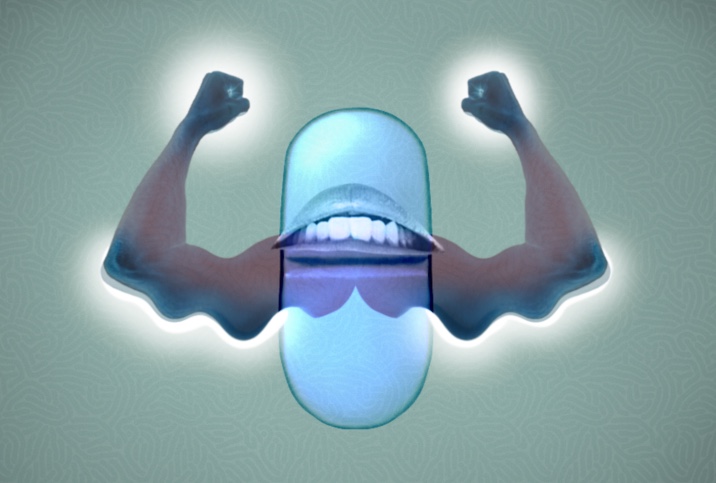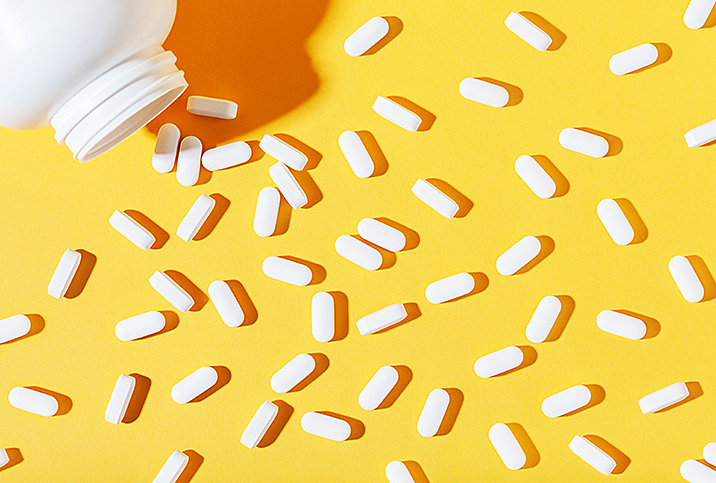Please Stop Believing These Testosterone Inaccuracies

Our concept of testosterone can be traced back to antiquity when farmers realized that bulls, billy goats and boars became less aggressive when they were castrated.
Consuming animal testicles was—still is in some places—believed to boost energy, erectile function and sexual desire.
The idea that testicles contain the magical ingredient that sustains a man's sexual vigor, vitality and manhood persists. Testosterone, a hormone made in said testicles, continues to garner attention for traits traditionally linked to masculinity, including male-typical athletic performance, boldness, risk-taking and other leadership qualities.
But the idea of testosterone—or simply "T," as it is sometimes known—as the essence of manliness is an oversimplified one. Here, medical professionals dispel common testosterone myths and misconceptions.
Inaccuracy #1
Testosterone is the male sex hormone
There are two problems with saying testosterone is the male sex hormone, according to Stanton Honig, M.D., a professor of clinical urology at Yale School of Medicine in New Haven, Connecticut.
"Testosterone is just a hormone," Honig said, addressing the first problem with thinking of testosterone as the male sex hormone. "It has a reputation of being a sex hormone, but it has many other functions outside of sexuality."
In addition to sex drive, testosterone plays a role in mental health, bone and muscle mass, hair growth and other bodily functions.
The second problem is that testosterone isn't exclusive to men.
"Women also have a small amount of testosterone," Honig said, adding that it's nowhere near the amount you see in males.
Inaccuracy #2
High levels of testosterone make you aggressive
Having high-T doesn't always make you aggressive, according to Michael L. Eisenberg, M.D., a professor of urology at Stanford University School of Medicine in Palo Alto, California.
"While higher levels of testosterone can affect some behaviors, it is not always a simple relationship," Eisenberg said. "Individuals with higher levels may not be more aggressive than those with lower. Similarly, [testosterone] supplementation does not lead to aggressiveness in all men."
Honig agreed that the link between testosterone and aggression may vary from individual to individual, but pointed to the phenomenon of "'roid rage," or aggressive behavior caused by the abuse of anabolic steroids. Steroids work by mimicking testosterone, and studies have shown that people who abuse them report more anger, aggression and violence.
Inaccuracy #3
High testosterone makes you better in bed
Testosterone levels falling within the normal range are unlikely to influence your performance in bed, Honig explained.
"Having said that, some men who have low testosterone will have a lower libido or sex drive," he said. "So they may not be as interested in sex as a male who has a normal testosterone level."
And there are many more factors at play than libido when it comes to being an ace in the sack, Eisenberg added.
"While testosterone is necessary for normal sexual function, testosterone by itself is not the only formula to a good sexual relationship," he said.
"Being a better lover is something that's important on multiple levels," Honig added. "It has a lot more to do with being caring, loving and understanding, which are not necessarily testosterone-related traits."
Inaccuracy #4
Testosterone improves fertility
Testosterone does not improve fertility. In fact, it does quite the opposite, according to Eisenberg.
"Testosterone therapy has been tested as a contraceptive because it dramatically lowers sperm production in most men," he said.
It does so by decreasing levels of another hormone called follicle-stimulating hormone (FSH), which is important in the creation of sperm.
"For men interested in fertility, testosterone therapy is generally contraindicated," Eisenberg said.
Inaccuracy #5
High testosterone levels make you a better athlete
Just as there are many elements to sexual performance, there are many components to athleticism, Eisenberg said.
"Testosterone is anabolic and can lead to an increase in muscle mass and strength," he added.
Yes, that may facilitate some aspects of athletic prowess. By itself, though, testosterone can't improve athletic performance.
"[Testosterone] itself is not necessarily going to make you a better athlete," Honig added. "But it does give you a potential advantage. In sports, that's called cheating."
Inaccuracy #6
If you have low testosterone, testosterone therapy is the only option
The question of using testosterone therapy to address low-T is "complicated," according to Honig.
If you are concerned about low-T, you should go to the doctor for testing.
"If you do have low testosterone, you can consider testosterone therapy at that point with a licensed physician or a provider," he said.
Testosterone therapy comes in the form of testosterone injections, gels, patches or pellets, and is designed to offset the symptoms associated with low-T, such as fatigue and erectile dysfunction (ED).
Eisenberg warned that testosterone therapy can have side effects. Common ones include:
- Acne and skin problems
- Stimulating the growth of prostate cancer
- Limiting sperm production
He added that the "normal" range for testosterone levels is a wide one, meaning there may be different treatment levels required for each individual. Determining treatment can be especially difficult because some men with low testosterone may not have symptoms.
"All of these aspects should be discussed with a physician to decide if testosterone therapy is the correct option for an individual patient," Eisenberg concluded.
Are you concerned you might have a testosterone issue but you don't have a doctor you see regularly? Well, you should. Today, telehealth makes it easy to connect with a doctor who can answer your questions, take a health history and evaluate your situation. Many physicians offer video visits, which are a good way to see a doctor quickly since a lot of them have same-day appointments.
Giddy telehealth is an easy-to-use online portal that provides access to hundreds of healthcare professionals whose expertise covers the full scope of medical care, including men's health.


















